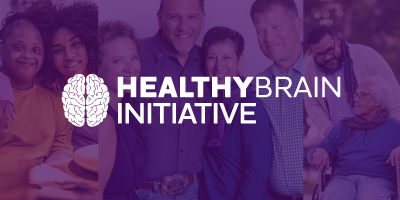Alzheimer's and Public Health Action in Connecticut
Alzheimer’s disease is a growing public health crisis in Connecticut, and the impact of Alzheimer’s is projected to rise. A comprehensive public health approach is essential to improve community health, support the well-being of those living with cognitive decline and their families, and reduce the risk of dementia throughout communities. The most recent data show:
77,000
people aged 65 and older are living with Alzheimer’s in Connecticut.
15.7% of people
aged 45 and older have subjective cognitive decline in Connecticut.
130,000
family caregivers provide essential support to people living with dementia in Connecticut.
205 million
hours of unpaid care are provided by dementia caregivers in Connecticut.
$5.2 billion
is the value of unpaid care provided in Connecticut.
$1.2 billion
is the cost of Alzheimer’s to the state Medicaid program.
Fact sheets on Alzheimer's and dementia in Connecticut
View and download state-specific fact sheets for the latest data on each topic:
Learn more about how these data are collected in the annual Alzheimer’s Disease Facts and Figures report and the Behavioral Risk Factor Surveillance System (BRFSS).
Public health progress in Connecticut
State, local, territorial and tribal health departments are key partners in implementing a robust public health response to dementia. The Connecticut Department of Public Health is improving brain health throughout the state.
The Connecticut Department of Public Health Statewide Coalition is actively implementing the Connecticut Alzheimer's Disease and Related Dementias Strategic Plan, with a key focus on supporting caregivers. In 2024, a dedicated workgroup was formed to adapt the Oregon State Caregiver Guide to meet Connecticut’s specific needs. This group, which includes caregivers and individuals living with Alzheimer's and other dementia, has been working to ensure the guide is relevant, up-to-date, and inclusive of local resources. The finalized guide will be available in both English and Spanish, in print and digital formats, and will be distributed to the general public and health care providers.
Working across the levels of prevention
Across the levels of prevention, the Connecticut Department of Public Health implements public health programs and interventions to address Alzheimer's through:
- Risk reduction: Relaunched It's All Connected, a dementia risk reduction campaign, along with BRFSS fact sheets, surveillance data, and other updated resources.
- Early detection and diagnosis: Conducted trainings for health care professionals and community professionals to increase awareness of Alzheimer’s and other dementia, including signs and symptoms, diagnosis, treatment, and resources.
Developing public health infrastructure and expanding capacity
Public health programs are critical to helping people stay cognitively healthy throughout life. Health departments in Connecticut are developing infrastructure and expanding capacity through these programs:
- BOLD Program: Connecticut Department of Public Health
- Risk Reduction Learning Collaboratives: Milford Health Department, Farmington Valley Health District
- HBI Road Map Strategists: Farmington Valley Health District
Resources for public health professionals
Tools from the Alzheimer's Association provide public health strategies that public health professionals can use to improve brain health and support caregivers and people living with dementia in your community.
Contact us
Public health professionals can contact the Alzheimer's Association public health team for questions and support.
Learn MoreGet involved
Anyone can join the fight against Alzheimer's by getting involved with your local chapter.
Find Your Chapter





